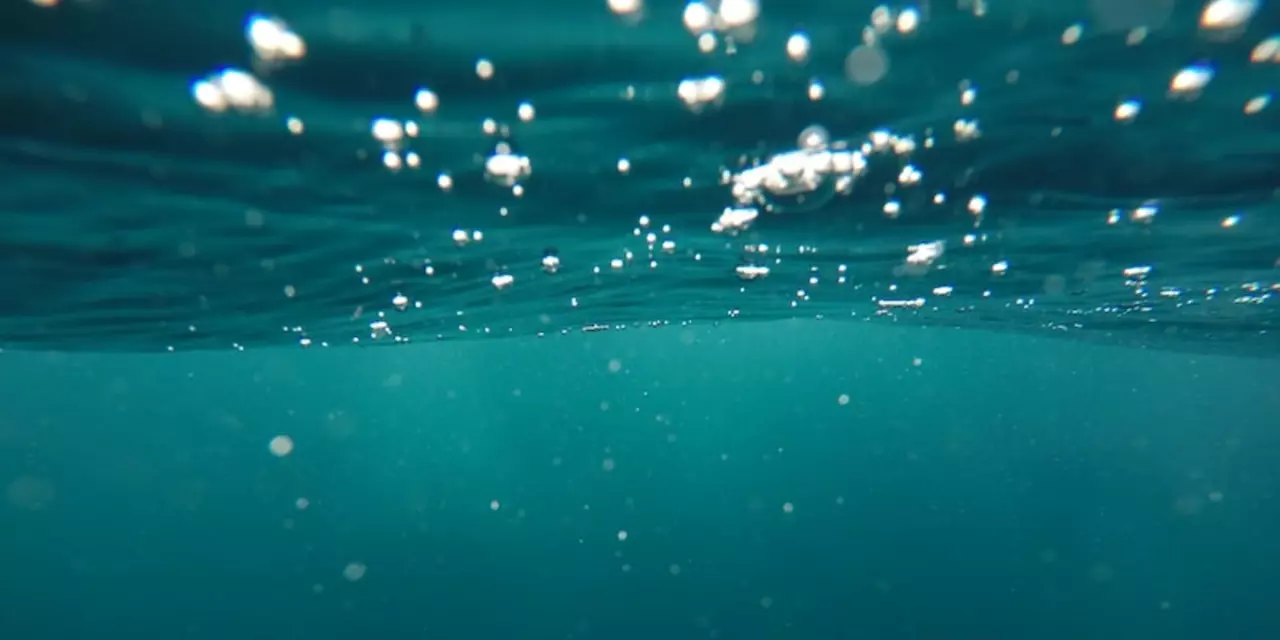
The ocean has long been a source of mystery, beauty, and awe for many people. It is also an incredibly complex and dynamic ecosystem, with a variety of abiotic factors that contribute to its overall health. Abiotic factors are non-living components of an environment that interact with living organisms. In the ocean, abiotic factors include water temperature, salinity, oxygen levels, sunlight, and the availability of essential nutrients. In this article, we'll explore each of these abiotic factors in greater detail and discuss how they influence the ocean's overall health.
Water Temperature
Water temperature is one of the most important abiotic factors in the ocean. It affects the distribution of organisms and the availability of nutrients. In general, warm water encourages the growth of plankton and other organisms, while cold water tends to be less productive. Additionally, temperature can affect the behavior of fish, causing them to migrate to areas where the water is warmer or colder than their current habitat. Changes in temperature can also affect the chemistry of the ocean, such as the concentration of dissolved oxygen.
Salinity
The salinity of the ocean is determined by the ratio of dissolved salts to water. This ratio plays an important role in the distribution of organisms and the availability of nutrients. In general, higher salinity levels are associated with higher levels of productivity. Changes in salinity can also affect the behavior of fish, as well as the chemistry of the ocean. For example, high salinity levels can lead to increased oxygen levels in the water.
Oxygen Levels
Oxygen is an essential element for the survival of most organisms. In the ocean, oxygen levels can vary depending on the temperature, salinity, and availability of food sources. Low oxygen levels can lead to a decrease in the productivity of the ocean, while high oxygen levels can lead to increased productivity. Additionally, low oxygen levels can lead to a decrease in dissolved oxygen and an increase in the concentration of toxic substances.
Sunlight
Sunlight is an important abiotic factor in the ocean. It provides energy for photosynthesis, which is essential for the growth of algae and other primary producers. Sunlight can also affect the behavior of fish, as they seek out areas where they can find shelter from the intense light. Additionally, changes in sunlight can affect the chemistry of the ocean, such as the concentration of dissolved oxygen.
Nutrients
Nutrients are essential for the growth and survival of organisms in the ocean. The availability of essential nutrients can vary depending on the temperature, salinity, and oxygen levels in the water. Nutrients can also be depleted by human activities such as overfishing and pollution. Changes in nutrient availability can lead to changes in the productivity of the ocean and the behavior of fish.
The ocean is a complex and dynamic ecosystem, with a variety of abiotic factors that interact with living organisms. In this article, we explored the abiotic factors of the ocean, including water temperature, salinity, oxygen levels, sunlight, and the availability of essential nutrients. By understanding these factors and how they interact with living organisms, we can better understand the health of the ocean and the species that inhabit it.
The ocean is a vast and complex environment that is constantly changing due to the influence of a variety of abiotic factors. Abiotic factors are non-living components of the environment that can have an effect on the living organisms in the ocean. These factors include temperature, salinity, pressure, light, oxygen, nutrients, and pollutants. In this article, we will explore the impact that these abiotic factors have on the ocean ecosystem.
Temperature
Temperature is one of the most significant abiotic factors in the ocean. Temperature affects the rate of metabolic processes, the types of organisms that can survive, and the movement of ocean currents. In some cases, changes in temperature can lead to drastic changes in the ocean environment, such as the death of coral reefs due to coral bleaching. Temperature can also affect the availability of nutrients, as colder waters tend to be richer in nutrients than warmer waters.
Salinity
The salinity of the ocean is another important abiotic factor. Salinity is determined by the ratio of dissolved salts to water. Salinity affects the movement of water, the types of organisms that can survive, and the availability of nutrients. For example, waters with higher salinity tend to have fewer nutrients available for organisms to use.
Pressure
The pressure in the ocean is also an important abiotic factor. Pressure affects the movement of water, the types of organisms that can survive, and the availability of nutrients. Higher pressures tend to create denser waters, which can make it difficult for some organisms to survive. Pressure also affects the rate of metabolic processes, as higher pressures tend to slow down metabolic processes.
Light
Light is an important abiotic factor in the ocean, as it affects the types of organisms that can survive. Different types of organisms require different amounts of light, so the availability of light can have a major impact on the types of organisms that can survive in an area. Light also affects the availability of nutrients, as certain types of algae require light in order to photosynthesize and create food for other organisms.
Oxygen
Oxygen is an essential element for all marine organisms, and the availability of oxygen in the ocean is an important abiotic factor. The amount of oxygen in the ocean can affect the types of organisms that can survive, the rate of metabolic processes, and the availability of nutrients. In some cases, low oxygen levels can lead to the death of certain organisms.
Nutrients
Nutrients are essential for all marine organisms, and the availability of nutrients in the ocean is an important abiotic factor. Nutrients can come from a variety of sources, including the atmosphere, rivers, and ocean currents. Nutrients can affect the types of organisms that can survive, the rate of metabolic processes, and the availability of food for other organisms.
Pollutants
Pollutants are another important abiotic factor in the ocean. Pollutants can come from a variety of sources, including agricultural runoff and industrial waste. Pollutants can have a major impact on the ocean environment, as they can lead to the death of certain organisms, the disruption of food webs, and the contamination of water sources.
In conclusion, the ocean is a complex environment that is constantly influenced by a variety of abiotic factors. These factors include temperature, salinity, pressure, light, oxygen, nutrients, and pollutants. Each of these factors has an effect on the ocean environment, and understanding their impacts can help us better understand and protect the ocean ecosystem.


